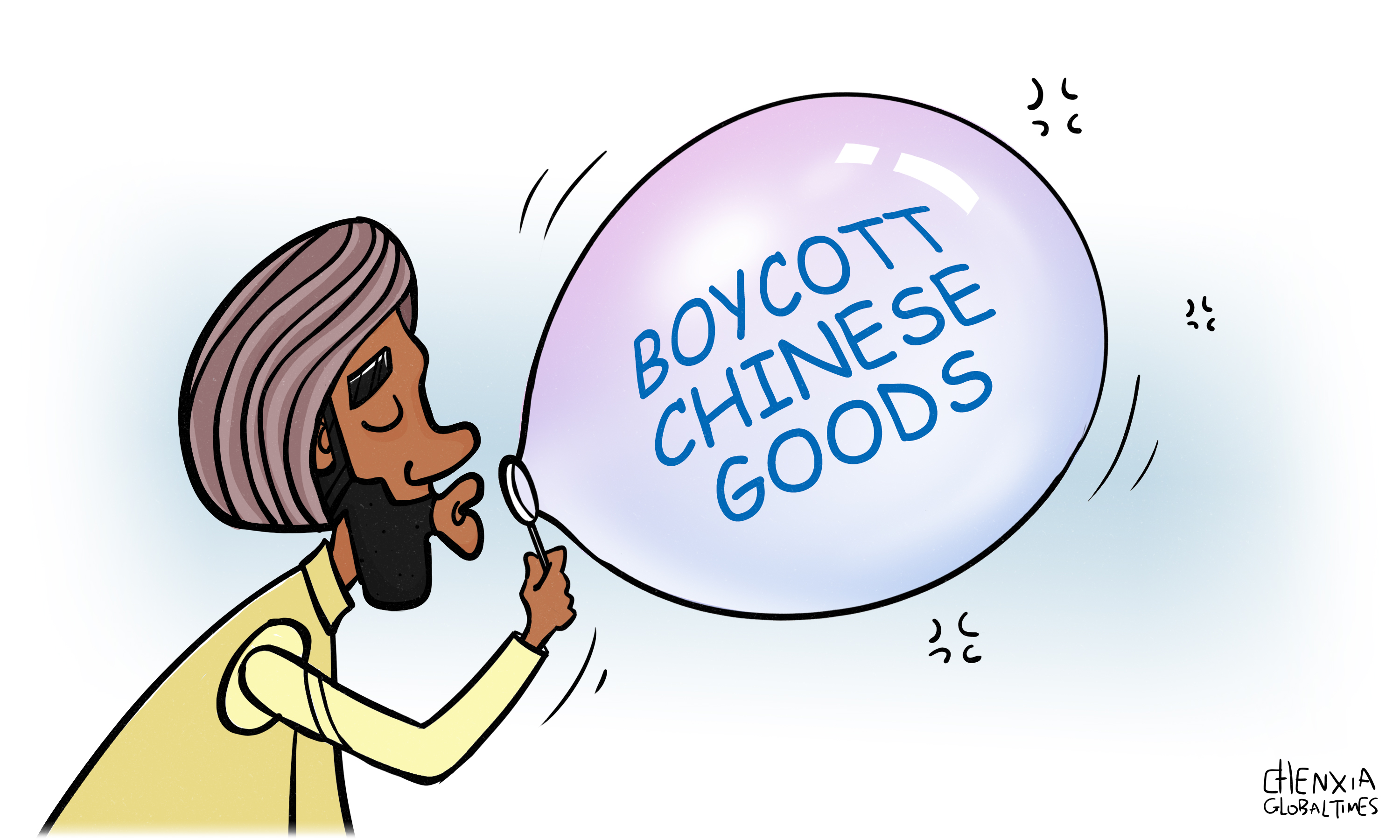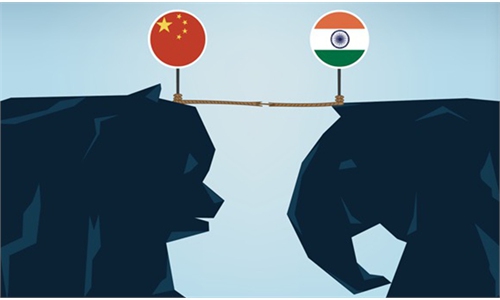
Illustration: Chen Xia/Global Times
Days after Delhi chief minister Arvind Kejriwal called for a ban on trade with China in the backdrop of border disputes, Kejriwal on Sunday once again asked people to boycott Chinese goods. "I appeal to people to boycott Chinese goods. We will buy Indian products even if those cost double," Kejriwal said, according to the Times of India.Amid a period of uncertainty for the global economy, it is crucial for China and India, as the giants of the emerging world, to enhance economic cooperation rather than hinder the development of trade and investment due to border disputes. But, it is regrettable to see some Indian politicians do not understand this simple truth and accumulate political capital by pandering to populism.
Some Western media outlets have deliberately hyped the narrative of China as a "potential threat" in the Indian Ocean region, and there is no need to deny that in India, the nationalism against China has been on the rise. It is understandable some politicians want to cater to this sentiment, because it's always the easiest way to canvass votes, however, they should not sacrifice the economic interests of ordinary Indians.
Although inflation rose less than expected in October, registering an increase of 6.77 percent, India still faces tough tasks in reducing poverty in particular impacts from the COVID-19 pandemic. The pandemic has pushed 230 million Indians into poverty with a 15-percent increase in poverty rate in rural India, according to a report by the Azim Premji University in last year.
Kejriwal may not understand the real life of people living below the poverty line, otherwise, he wouldn't be quoted as saying "we do not need cheap Chinese goods. We are ready to pay a premium price for such products if they are made in India." Objectively speaking, consumers with lower incomes in India need cost-effective goods. It is irresponsible for some politicians to advocate a boycott of Chinese products and require consumers to "pay a premium."
Even if some Indian consumers are persuaded to "pay a premium," their sacrifice will be meaningless. According to media reports, Kejriwal tries to link border disputes with trade issues and said "the day we stop 95 billion dollars import, China will learn a lesson." However, it's just a childish act to say something like that. On the one hand, the recent border clash was provoked by India after its troops illegally crossed the Line of Actual Control (LAC) on an eastern section of the China-India border and blocked the Chinese forces. It is easy to tell the rights and wrongs of the case.
On the other hand, if some in India want to frighten China with India's imports, it won't work simple because China's exports to India only take up a very small proportion of its total export. In the first 11 months of this year, China's exports to India stood at $109 billion, only accounting to 3.3 percent of China's $3.3 trillion overall exports during the same period.
Yet, China has always attached great importance to the development of China-India economic and trade cooperation. The spokesperson of the Ministry of Commerce of China stated earlier this year that China and India are important economic and trade partners of each other. The economic and trade cooperation between the two countries has strong resilience and great potential. It is hoped that India can take practical measures to maintain the sound development momentum of bilateral economic and trade cooperation.
Although nationalism has been on the rise in India, we still believe that calls for a boycott of Chinese goods do not reflect mainstream public opinion in the country. China-India economic and trade cooperation has a solid foundation, the industrial structure is highly complementary, and the future development potential remains significant.
China is the largest manufacturing country with the most complete industry categories. China can provide cost-effective products that India needs in both production and consumption. Many local Indian companies and foreign companies investing in India need to import a large amount of industrial chemicals, active pharmaceutical ingredients, and auto parts from China as intermediate products.
For example, in the generic pharmaceutical industry that India is proud of, most of its pharmaceutical equipment and more than 70 percent of its raw materials need to be imported from China. Despite the impact of non-economic factors, India's imports from China have maintained strong growth, which demonstrates Indian businesses still mainly follow economic rationality when it comes to trade with China.
Between China and India, common interests far outweigh differences, and therefore it will be wise to put aside disputes and continuously promote trade and investment cooperation between the two emerging economies.
The author is a reporter with the Global Times. bizopinion@globaltimes.com.cn



